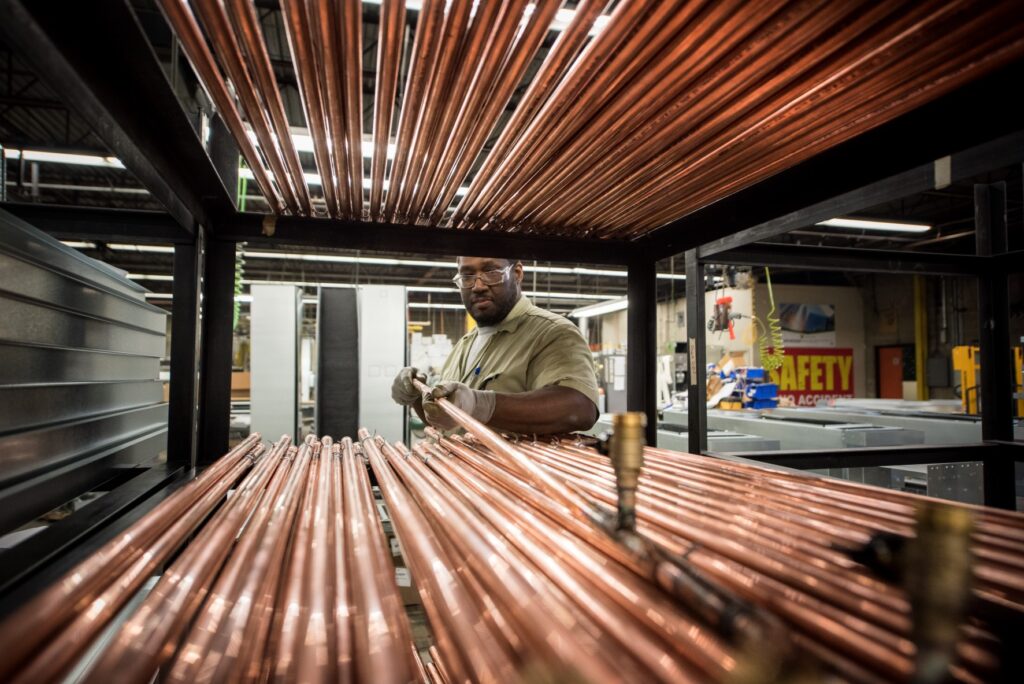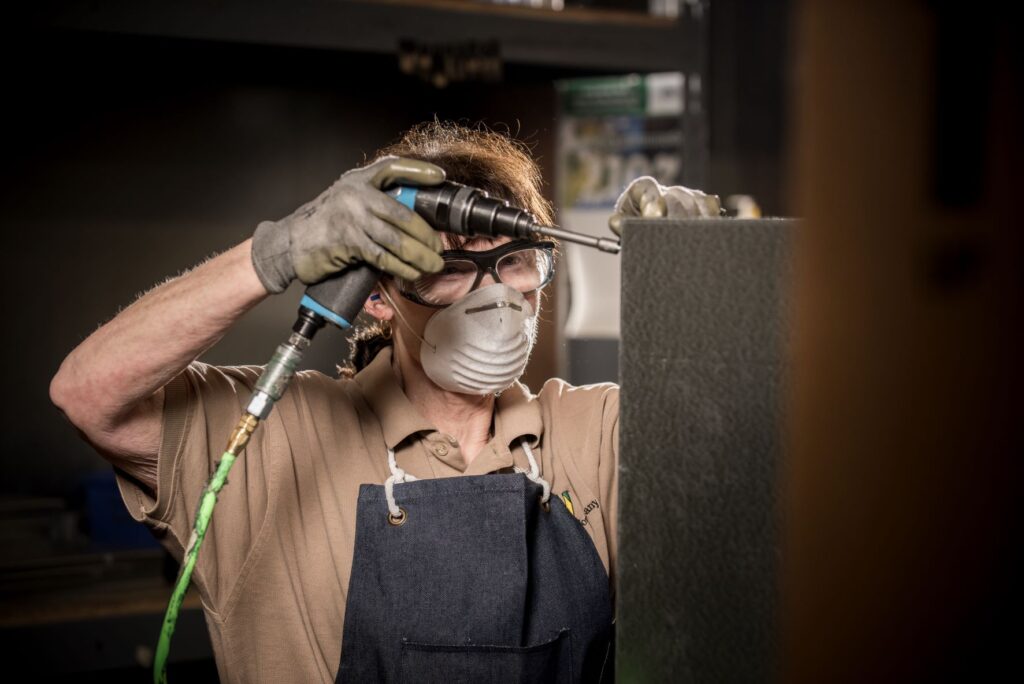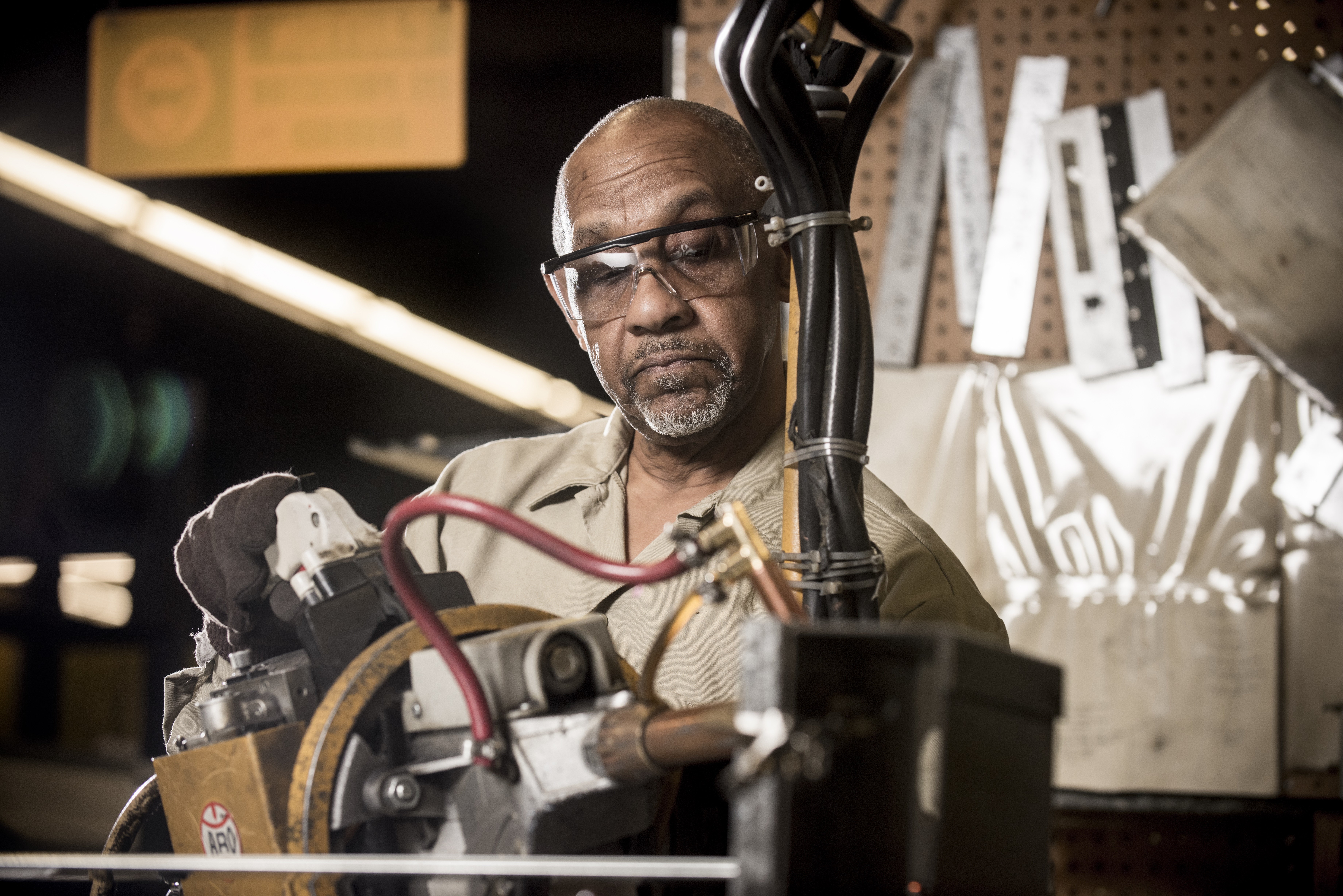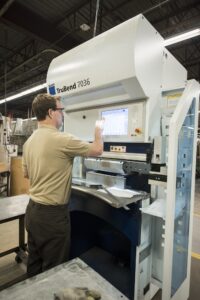
In 2022, The Whalen Company marked 60 years as a pioneering manufacturer of vertical-stack HVAC equipment. Today, you’ll find equipment made by this Easton-based company in high-rise buildings across North America.
_____________________________________
James Whalen had an idea.
A sales engineer at a large HVAC company, Whalen imagined building a fan-coil unit with the field risers inside the cabinet, adding a fan blower, and stacking the units on top of one another. This “vertical stack” idea would reduce the amount of materials needed to make the product, and it would save contractors and builders money on installation.
When his employer rejected the idea, Whalen refused to be discouraged. He patented his design, built the first units in his garage, and convinced buddies who were contractors to try the new product.
Now, 60 years later, vertical stack HVAC units made by The Whalen Company can be found in high-rise buildings all over North America. Hailed as a pioneering manufacturer of HVAC equipment, the Easton-based company has nearly 750,000 — and counting — in the marketplace.
“It’s a very simple concept,” explains President and CEO Craig Wanner. “When our product debuted, people soon started saying, ‘Wow, this is a much better way to put this thing together.’ That started the concept of a vertical stack HVAC unit.”
From Zero to 60
The company was launched in Laurel, Md., in 1962, but the original plant was constructed in a flood plain, causing the building to flood after hurricanes and other extreme weather events. Hurricane Eloise was the final straw.
The search for a new home took company executives to the far corners of Maryland, Pennsylvania, and Virginia, but The Whalen Company settled on a 7-acre site on Glebe Park Drive in Easton in 1979.
In 2022, the company celebrated its 60th year in business. Even today, the evolution of an idea from manufacturing to installation is an impressive feat, Wanner says. The Whalen Company has succeeded against all odds, and it continues to innovate and develop new products.

The company employees 110 people at its Easton plant and engages an army of manufacturers’ representatives tasked with selling the products in the U.S and Canada. Whalen also has absorbed and expanded a company in Rome, NY, that makes replacement water-source heat pumps for aging HVAC systems.
Now, the company can both manufacture products for new construction and make replacement units for older systems, spreading the risk for the company as building cycles ebb and flow. This is important for a privately held, family-owned company.
For new construction, Whalen goes head-to-head with the largest HVAC manufacturers in the world – Daikin, Carrier, Trane, Climate Master.
“Our units do the same things theirs do,” Wanner explains. “They heat. They cool. But we build a lot of service features into our products. Every unit is custom built. Literally, every unit is built and tagged for a specific room in a specific building.
“We truly are a custom HVAC manufacturer,” he continues. “I think what sets us apart from our competition is our ability to react faster, the fact that we stand behind our products, and the long-term relationships we have built with our representatives, customers, and vendors.”
Replacements, Unlimited
Cold Point Corporation, the New York company Whalen acquired in 2017, specializes in aftermarket HVAC solutions, building units and parts for systems that need to be replaced. The concept is brilliant considering all of the aging buildings in the U.S. that need HVAC replacements or upgrades.
“We’re blending the companies now because we’re seeing that there’s a lot more opportunity in the replacement business,” Wanner explains. “We’re making replacement water-source heat pumps and replacing units that were designed more than 25 years ago. Many times an owner doesn’t want to tear down walls or paint a room to put in a brand new unit. With our replacement units, they can simply slide in a new module and have a ‘plug and play’ solution.”
This part of the business is so important to the future of the company that Whalen built a new facility in New York that open in March of 2021. The number of employees at that site has more than doubled, as have the sales of replacement units.
“It’s a growth opportunity for us,” Wanner says. “We’re trying to shift our business more heavily to the replacement side of the business rather than new construction. When the economy goes up, people build new. When it goes down, they replace.”
A Bright Future

Though the last few years have been tough, Wanner says the future is bright for U.S. manufacturing. In the next 10 to 15 years, he expects to see significant investment from international manufacturers in “the best economy in the world,” particularly in the manufacturing sector.
This trend, combined with the need for additional housing, will bring expansion and innovation to U.S. companies.
While no business is recession proof, Wanner is confident people will “still need to be warm in the winter and cold in the summer cool in the summer,” even in the worst of times. He already knows what inventory the company will produce in 2023, and his team is now selling products for 2024 delivery dates.
To accomplish its goals, Whalen needs to maintain a stable workforce and hope that no “Black Swan event” such as COVID-19 lurks around the corner. During the pandemic, Whalen was forced to lay off employees, and they participated twice in the Maryland Department of Labor’s work sharing unemployment insurance program.
“We hung on to our skilled workforce during the pandemic because we knew this day would come,” Wanner explains. “We’re incredibly busy now. We’ve got a solid group. We can bring new people along to train, but we’ve still got our core.”
Labor shortages now affect every business, but it is especially hard to attract young people to manufacturing. Wanner says the country needs to make manufacturing a desirable career path again.
“There’s this idea that you’ll be stuck in a factory all day, and there’s no growth opportunity,” he notes. “But for those who don’t want to pursue a college education, Whalen offers a viable alternative.
“We believe we’re good people, a good company,” Wanner continues. “You can come work here from 7 a.m. to 3:30 p.m. When you leave here, you can see all of the kid’s ballgames. You have the weekends to yourself. Quality of life is equally important. You’ve got great pay and great benefits, and there’s a chance to grow.”
The Family Business
Though Wanner is not an engineer himself, he always knew he would work at The Whalen Company.
His father joined the company in its early years and ultimately became president and CEO. Wanner worked odd jobs at the plant from the time he was old enough, and he went on to work in many different parts of the business, from HR and IT to operations and sales.

“I love the people I work with,” Wanner says. “I’ve known so many of them a long time. I’ve got good, strong relationships with our customers and our vendors. It’s neat to live in Easton and work at a business that’s known all over North America, but is hiding in plain sight here.”
A great deal has changed in manufacturing since the 1960s. Automation has made the work easier, but it has not eliminated the need for the “human touch.” Consolidation within the industry also has made it harder for medium-sized companies like Whalen to compete.
Despite the changes, Wanner says the company has found its sweet spot. It’s a family-owned business with a unique niche in a growing market. While he expects to see continued innovation and expansion, Wanner and other stockholders are committed to Talbot County.
“I don’t ever see us leaving the area,” Wanner says. “The quality of life we have here is really something special, and we are proud of our brand. I am proud to wear that ‘W’ on my shirt every day.”
Learn More: The Whalen Company’s History
Never miss an update: Sign up for Talbot County Economic Development and Tourism’s Talbot Works newsletter here.